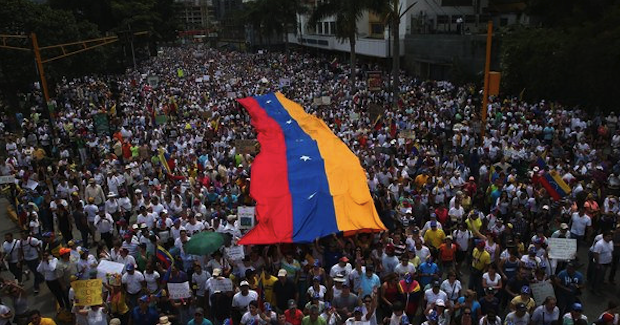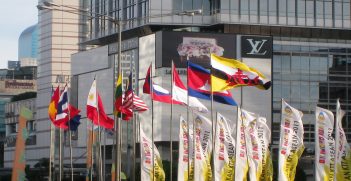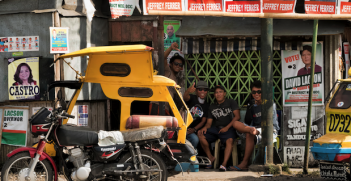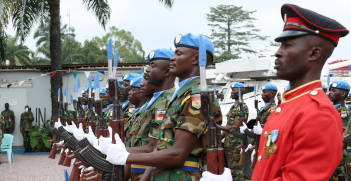Venezuela: Demise of the Bolivarian Revolution?

Two decades after its beginning, Venezuela’s Bolivarian Revolution is at a critical and uncertain junction. The country is marred by an unprecedented economic crisis and the government of President Nicolás Maduro is facing an emboldened opposition. How did this happen and what is the path ahead?
Following Hugo Chavez’s untimely death in 2013 and the arrival of President Nicolás Maduro to power in a close election against opposition leader Henrique Capriles, oil-rich Venezuela has experienced continuous economic decline, rising social strife and political turmoil. The country has one of the highest inflation rates in the world (180.9 per cent in 2015, projected to increase threefold in 2016) and suffered a decline in GDP of at least 5.7 per cent last year. There is a chronic scarcity of food, medicines and other basic goods. Poverty is on the rise and quality of life has been significantly diminished. There are extremely high levels of criminal activity with the spheres of state and society both penetrated by gangs and corrupt networks. The government has also lost the capacity to keep running effectively the social services and programs enacted during Chavez’s rule.
More importantly, there is little reason to think the situation will improve any time soon. Oil prices have not entirely recovered, international financing sources are limited and recurring debt payments are becoming ever harder to fulfil. The state-controlled currency system still overvalues the local Bolivar against the US dollar, increasing incentives for corruption and fuelling a black market that remains the main source for many imports. Maduro has repeatedly vowed that the regime’s internal and external enemies are waging an “economic war”, and are coordinating efforts to sabotage the economy and put into effect a slow-motion coup. Yet his administration’s efforts to address the crisis have been largely unsuccessful, even after resorting to draconian measures such as the recent decision to place the control of the supply of food and medicine in military hands, and channelling the distribution of goods through neighbourhood committees (known as CLAPs) formed by regime loyalists.
Most regime partisans and opposition supporters would agree that the current path is unsustainable. The crisis has resulted in a serious loss of support for Maduro and the ruling United Socialist Party (PSUV) with close to 80 per cent of Venezuelans expressing a negative opinion of Maduro in recent polls, including many chavistas. Despite a very tense and risky polarised political environment, more than 60 per cent of Venezuelans openly assert they would vote to remove Maduro in a prospective recall referendum. This underlying reality worries both civilian and military actors within the regime, and emboldens political opponents.
In December 2015, following a short, tense campaign marred by Maduro’s increasingly aggressive rhetoric, Venezuela’s multi-party opposition movement—known as the Democratic Unity Roundtable or MUD—won the legislative elections with about 55 per cent of the popular vote. More than two million votes ahead of the ruling party. Subsequently, the opposition secured more than 109 seats and a comfortable legislative majority in Venezuela’s National Assembly. However, since the new assembly was inaugurated in January 2016, the government has consistently managed to defy new laws approved by parliament and, even worse, has repeatedly used the regime-friendly supreme tribunal—formed by pro-government justices and packed with 13 new members via off-season appointments last year—to strike down legislation at the regime’s behest. This ongoing confrontation reached a new low in early September, when the tribunal’s constitutional chamber decided to declare that everything the assembly decides or legislates is void, as long as the assembly insists on incorporating three deputies allegedly elected through fraud.
Less than an inter-branch conflict in a democratic context, this clash between the opposition-dominated legislature and the rest of the state apparatus reflects something more troubling: the regime’s increasing unwillingness to allow dissent, especially in a context where the prospects of losing power become increasingly likely. Venezuela should be best understood as a hybrid regime—a form of government that combines democratic institutions with strong authoritarian traits. This has been the case for a long time but it has taken a turn for the worse with increasing repression, open threats against opposition leaders and partisans, imprisoning regime opponents (including prominent opposition leader Leopoldo Lopez), an expansive role for the military in the state apparatus, and other signs of democratic deterioration.
Part of the logic to solve the political standoff remains conditioned by the constitution. After all, the law establishes a recall referendum as a viable formal alternative to remove the president by popular vote. Yet, there is an important caveat: If the referendum takes place before the first half of Maduro’s term (by 10 January 2017), Maduro would be removed and new presidential elections would need to be called soon thereafter, an election that almost certainly would be won by an opposition candidate. Conversely, if the referendum happens after the first half of Maduro’s mandate, then according to the constitution the vice-president should take over and replace the president until the end of his term in 2019.
Thus, a defeat in 2017 would be hurtful but not entirely fatal for the regime. A new interim president could give the ruling Chavista elite a much-needed chance to bring new leadership, restore legitimacy and change course, and postpone (or even prevent) a transition to opposition rule. Hence, the government has resorted to multiple tactics to prevent the referendum from taking place for as long as they can (or even at all), whilst the opposition is solidly united behind the referendum and has increased pressure on the government to force the recall, including staging massive demonstrations in Venezuela’s main cities. Yet, on the other hand, as the crisis deepens and a solution remains elusive, the Venezuelan Army has become a more relevant actor to determine the country’s course. The country has been under state of emergency for months, and key areas of the state are under military rule. Thus, a distressing scenario is that the military takes direct control of the country. Although this remains unlikely—the domestic and international costs would be massive—it cannot be entirely discarded.
At this stage, the opposition awaits for Venezuela’s electoral authority to set the date for the collection of signatures to activate the referendum. By now, there is a growing perception that the referendum might not take place until early next year, and thus the country will be facing a very contentious and volatile 2017. What will happen then remains hard to predict.
Dr Raul Sanchez Urribarri is a Lecturer in Crime, Justice and Legal Studies at the Department of Social Inquiry, La Trobe University Melbourne. His scholarly work focuses on democracy, rule of law and comparative judicial politics.
This article is published under a Creative Commons Licence and may be republished with attribution.





